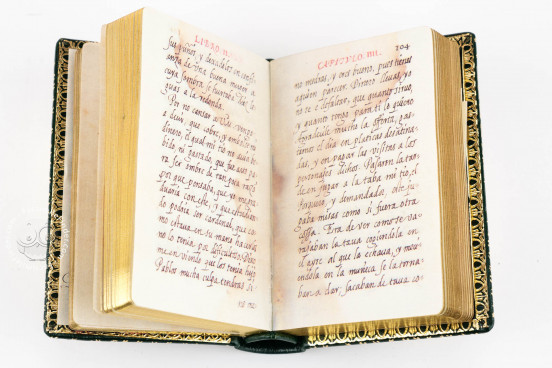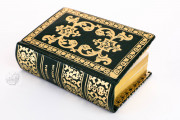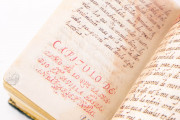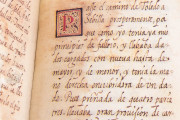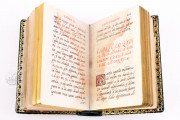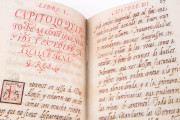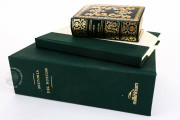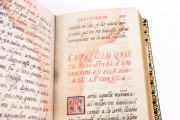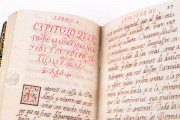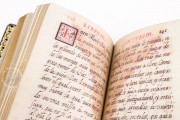Around 1604, Francisco de Quevedo published El Buscón, breaking the anonymity to composing this short story without sermons, planting this fertile genre firmly in the literature of the Spanish Golden Age, and of Europe as a whole.
Some critics praise this work for its pure and dazzling verbal ingenuity, while others laud it for its sharp social criticism.
Nevertheless, for reasons unknown, this text by the great Spaniard was not to be printed until 1626 and, despite the obvious hallmarks, was never to be recognized by its author as his own work.
Many copies of the manuscript circulated, as it's shown by the presence of three exemplars that have survived through the turbulent times since their realization. So it is thanks to the so-called "S codex" preserved in the Mendez Pelayo library in Santander, the "C codex" in the Spanish Royal Academy and the "B codex," which serves at the basis for this facsimile along with the "princeps" (E) of 1626, that we now have access to this famous tale.
This manuscript (B) had been completely overlooked or taken improperly into account by several modern editors of El Buscón, until Mr Fernando Lázaro Carreter brought it to light in 1965. From this moment, numerous editions of the novel have been based on this manuscript, with the conviction that it was Quevedo's last or greatest wish.
Francisco de Quevedo y Villegas (1580-1645) was born in Madrid and died in Villanueva de los Infantes.
We have 1 facsimile edition of the manuscript "History of the Swindler": El Buscón de Quevedo facsimile edition, published by Millennium Liber, 2002
Request Info / Price
